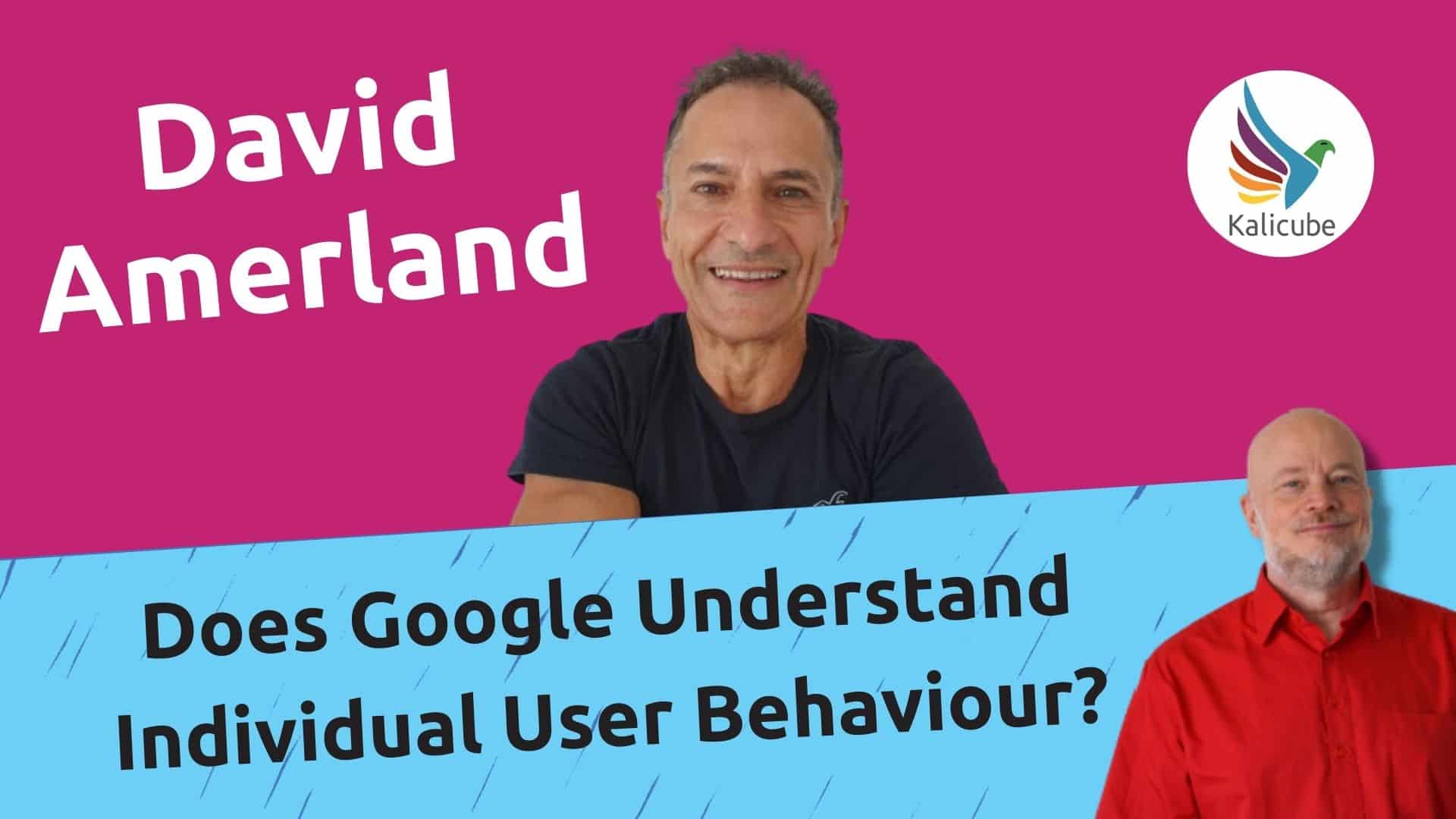Does Google Understand Individual User Behaviour?

How Searcher Behaviour, Intentions, and Expectations Work in Google’s World with David Amerland 11 January 2022 at 17 H CEST (Paris)
In this clip, David Amerland explains that it’s very difficult for Google to understand any individual person in detail. It collects millions of data points, but when will Google have enough data to actually understand each of us as human beings? David suggests that such a deep level of understanding is a long way in the future and that the timeline depends on the speed of technological change. But is Google ultimately fighting a losing battle? Listen to the whole clip!
00:00 Google understands based on pattern and behaviour
00:47 When will Google have enough data for everyone?
01:37 Using behaviors on the web
01:57 Google process so much data
Transcript from: Does Google Understand Individual User Behaviour?
The easier it is for Google to understand what you do. So are you an easy person to understand? No. Any more than I am, right. I use Google in a very weird way because of my research, because of the searches I do, because of the information I seek. And it’s very difficult for Google to understand who I really am in terms of what I do. But given enough timeline, long enough timeline, given sufficient data, then the pattern of who we are is evident, especially for a machine. Even a person could tell, but a machine can tell it faster.
Sure. But for us individually, the written…
“You are typical – David” Sorry. That was Anton for people just listening. Anton just put that on the screen. The question then becomes, at what point will Google have enough data around all of us or each of us to be able to really nail down that specificity in the results for me, compared to you, compared to the rest of humankind? I suppose the answer depends on the rate of change of technology, which seems to have accelerated. So, if things stay as they are right now, and we all talk to each other through two-dimensional screens, we use the technology which we currently have, but even more so then perhaps the connections can become more reliable. Things can become faster. Then you can say, “Okay, if we take that into its natural evolution within 10, 15 years, search will be amazing!” But this is not happening, right? What is happening? We are getting more and more photographic content which needs to be understood. Video needs to be understood, and we’re using more video messages to each other. We are using behaviors on the web, which have a timeline so then they vanish after awhile.
We are going to get into augmented reality. We’re going to get into virtual reality. All those things now are represented by an exponential growth of data points. So, Google is lost here, right? It’s going to have to work really hard.






